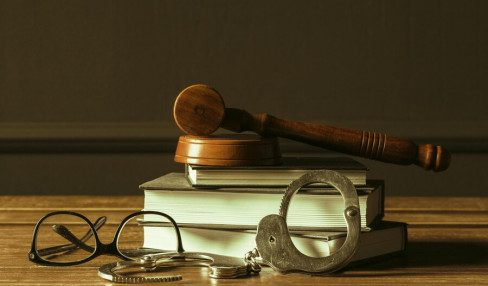How Can Individuals Initiate Legal Action Against Debt?
5 Mins Read
Published on: 23 February 2024
Last Updated on: 09 November 2024

toc impalement
Today’s debt is a common issue that can easily spiral out of control, leading to stressful situations, including legal challenges. While dealing with debt collectors can be daunting, it’s crucial to remember that as an individual, you have rights and options available to you, including the ability to take legal action against unfair practices or errors in your debt.
This guide aims to demystify the legal confronting of debt, providing a clear roadmap for those needing to defend their rights and possibly initiate legal action to resolve their debt issues effectively.
Understanding Your Rights
Every individual facing debt should start by familiarizing themselves with their legal rights. Laws such as the Fair Debt Collection Practices Act (FDCPA) in the United States offer protection against harassment, abuse, and misinformation by debt collectors.
Knowing what debt collectors are legally allowed to do and what crosses the line into illegal territory is the first step in defending yourself against unfair practices.
Awareness of your rights empowers you to recognize when those rights are being violated and lay the groundwork for any legal action you might decide to take.
Seeking Professional Advice

Navigating the complexities of legal action against debt can be overwhelming without expert guidance.
A debt collection defense lawyer can be invaluable in analyzing your situation, advising on the legality of the debt collector’s actions, and outlining the best strategies for moving forward. Professionals are well-versed in consumer protection laws and can offer personalized advice and representation.
Consulting with a lawyer clarifies your legal standing and significantly increases your chances of successfully challenging unfair debt collection practices.
Gathering Evidence

The foundation of any legal action is solid, incontrovertible evidence. Collecting documentation such as correspondence with debt collectors, payment records, and phone conversation notes can support your case.
Detailed evidence can demonstrate patterns of harassment or prove inaccuracies in the debt claimed. This step is crucial for building a strong case, whether you’re disputing the debt’s validity, the amount claimed, or the collection practices used.
Filing a Complaint

If you suspect a debt collector has violated your rights, filing a complaint with a regulatory body like the Consumer Financial Protection Bureau (CFPB) or your state attorney general can be an effective first step.
This brings attention to potentially illegal practices and can trigger an official investigation into the debt collector’s actions. It’s a way to formally document your grievances and can serve as a precursor to further legal action, should it be necessary.
Taking Legal Action

When violations of your rights are clear and substantiated, taking legal action might be the most direct route to resolving the issue. Initiating a lawsuit against a debt collector or collection agency for violations under consumer protection laws can lead to compensation for damages and put an end to unlawful collection practices.
This step requires careful preparation and should be undertaken with professional legal assistance to ensure the best possible outcome.
Negotiating a Settlement

Often, a mutually agreeable settlement can be a more expedient and less contentious resolution to disputes over debt. Negotiating with a debt collector can lead to a reduction in the amount owed or a more manageable repayment plan.
Legal representation during these negotiations can ensure that any agreement is fair and that your rights remain protected. A settlement agreement should always be documented in writing, clearly outlining the terms agreed upon.
Staying Informed and Prepared

The journey through legal action against debt is fraught with complexities and challenges. Staying informed about your rights, taking Legal Action legal process, and potential outcomes is essential.
Preparation involves gathering evidence, seeking legal counsel, and mentally and emotionally reading yourself for the steps ahead. Knowledge is power, and in the context of debt collection, it can be your most valuable asset.
How To Find The Best Debt Collector Attorney

Is your identity floating in debt, and do you need legal representation? Hiring a debt corrector becomes the primary tool for your financial future.
But, if this is your first time in any legal situation, how can you hire the right one on the first go?
Define Your Needs
Prior to your quest, do your assessment first and set your priorities.
Are you in foreclosure, bankruptcy, or debt collection cases?
Your particular requirements would make it easier for you to find the right debt lawyer who specializes in the area of the law related to your case.
Research Local Attorneys
You do not have to hire the first person you meet.
Start the process by creating a list of debt attorneys in your local area. You may use online directories and legal referral services or even get recommendations from friends, family, or colleagues. Finding someone who has been in the same situation before makes the search easy. Carefully choose lawyers who have a background in cases similar to yours.
Check Credentials and Experience
After you have your list of potential lawyers, read about their credentials and expertise. Be careful to choose a licensed attorney in your state. Plus, I have a successful background in debt-related cases.
Review their online profiles, websites, and testimonials available to see their level of expertise and reputation.
Or you can directly ask for their portfolio and winning report.
Schedule Consultations
Narrow down your list to two or three finalists and arrange initial consultations with all of them.
Quite a few attorneys provide free or inexpensive consultations to discuss your case with you and determine if they are the right fit for you. Create a list of questions to ask at the consultancy so that you are sure to cover all your concerns.
Ask the Right Questions
In the course of the consultation, find out from the lawyer their specific experience on cases similar to yours. Most importantly, how they deal with the difficult debt resolution and their fee structure.
Confirm with them about their availability and communication approach to make sure that they will be available and quick to respond.
Evaluate Communication and Compatibility
Make sure to pay attention to how the attorney communicates with you during the meeting.
Do they listen attentively, demonstrate empathy, and give a prompt response to all your questions and issues?
Pause and follow your instincts in choosing a lawyer you feel comfortable working with and who shows commitment to assisting you in achieving your goals.
To End The Discussion!
Facing debt collectors and considering legal action can be intimidating, but you can navigate these waters with the right information and support.
Understanding your rights, seeking professional advice, gathering evidence, and exploring all your options are critical steps in this process. Remember, the law provides mechanisms to protect consumers; leveraging these protections can help you resolve your debt issues fairly and justly.
More Resources:


















Comments Are Closed For This Article